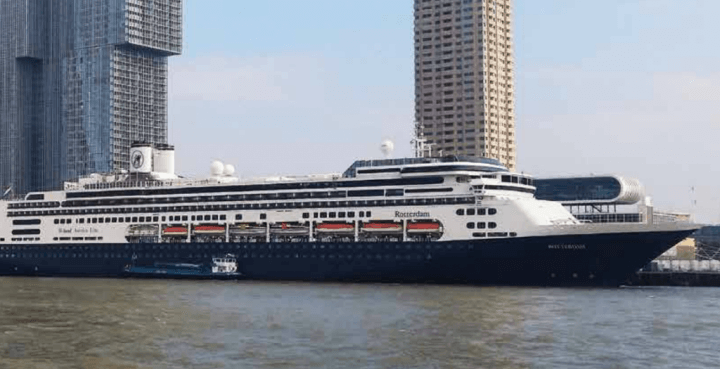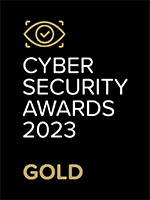Cruise vessels are often seen as very polluting. Incorrectly, says Sibrand Hassing, director fleet operations Europe of Holland America Group (HAG), based in Rotterdam. “Producing high emissions and a lot of waste as a cruise company in the areas you take your passengers means you ruin your own market. Nowadays you have to operate sustainably and sustainability will earn itself back.”
I do not know if sustainability is a top priority for our customers when choosing a cruise, but I do know it has their attention”, Hassing continues. “I heard from other cruise companies that if environmental pollution is discovered during a cruise, the passengers will often make it known via social media. This means bad marketing and some people see their concerns confirmed: cruises are polluting, although we are not. You need to prevent these kind of things. We have a ‘zero dumping’ policy, but if something accidentally goes overboard of one of our vessels, even if it only is a Ping-Pong ball, we will report it.”
Holland America Group (HAG) consists of Holland America Line (HAL), Seabourn, Princess Cruises and P&O Australia, with a total fleet of 41 cruise vessels. Since 1989 HAL has been part of Carnival Corporation, based in Miami, the United States of America. The from origin Dutch HAL was founded in 1873 and operates a fleet of 15 Dutch-flagged cruise vessels, executing more than 500 cruises per year, calling at 425 ports in 98 countries. Nowadays, HAL is headquartered in Seattle, the United States of America.
Sustainability goals
Reducing two per cent of everything – fuel, energy, water, waste – every year compared to the year before”, explains Hassing the corporate goal. “It is a slow, but continuous reduction and I am proud to say that we are on target for 2015 and up until now, we have reached our goal every year. We try to continuously optimise our fuel, energy and water consumption. Water is very important on board, we create our own drinking water, but that costs a lot of energy. Therefore we ask our passengers to use water thoughtfully, but we also have taken some measurements, for example water-saving shower heads and vacuum toilets to continuously reduce our water consumption. When a vessel has come into service, it does not mean that nothing is done anymore.”
“Applying energy-saving measurements is a continuous process, small adjustments are done during operations, bigger ones during the dockings that take place every two-and-a-half years. A lot happens out of sight, but it does happen. Take our air-conditioning system for example, which takes up a lot of energy, however, it is equipped with a sort of flywheel, that generates energy. Making passengers aware is important, you can only influence their behaviour to a certain extend, you cannot tell them that they can only shower for five minutes, but by showing them videos we try to make them aware of what their impact is.”
Involving employees
HAL encourages its employees to suggest points of improvement regarding sustainability and the best idea is rewarded. Hassing: “The kind of reward depends on the impact of the idea and stretches from telephone or internet cards to a cash bonus. An example of an idea that was rewarded is the disposal of used cooking oil. The used cooking oil used to be collected and mixed with our fuel, but one of our employees heard about companies that pick up this oil in the food service industry and wondered if that could be applied to the cruise industry as well. A company in Dover was interested and every time we are in Dover, the company collects about 1,000 litres of used cooking oil. The money we get for this is put in the crew’s box for tipping. It is these little things that eventually make a big difference.”
Recycling
Not only the used cooking oil is recycled, explains Hassing: “We want to dispose of our waste in a responsible way. On board, we have six people constantly separating different kinds of waste. We dispose the waste separately and when we find out that it is not processed separately, we will not dispose it in that particular port anymore. Our waste separators are proud of the work they are doing, they passionately work on it and their work space is very clean. Next to that we have agreements with packaging suppliers, for example we want bulk packaging instead of single packaging. With this kind of initiative we minimise our waste. We think a lot about how to further minimise it, for example food waste: is it possible to present the food in a different way?”
One big project the whole corporation is currently working on is the installation of scrubbers on the vessels. HAL’s vessel MS Rotterdam was just equipped with one and eventually all vessels will be equipped with scrubbers. “Some vessels are currently not sailing in SECA zones and will probably not do so in the future, but also these vessels will get a scrubber, with a little bit less priority though. Our goal is to have all 104 Carnival vessels equipped with a scrubber by 2020. We just increased the budget for this project, it will be a total investment of half a billion US Dollars. Next to SOx, our scrubbers also remove soot (PM), PH aromatics and heavy metals. The smoke that is discharged from our vessels, is almost completely clean, black smoke plumes belong to the past. The project is all about adjusting the existing fleet. As every vessel is different, it takes a lot of research and development, it is a continuous learning process and we are able to develop better and smaller scrubbers every time. For some vessels, the installation was not too difficult, but for others, we had to break down the scrubbers and take out cabins from the vessels to be able to install them. Almost every scrubber has to be an individual design.”
Corporate social responsibility
Corporate social responsibility is valued highly within Holland America Line. As the company is headquartered in Seattle, the United States of America, a lot is done there: employees as well as management are encouraged to do voluntary work, several good causes are supported by donations and disaster relief is offered, for example after the Tsunami in 2004 or hurricane Katrina in 2005. But also locally, there are initiatives. Sometimes initiatives are spontaneously started on board collecting goods or money, for example to support a local education project or an orphanage. In the Netherlands, the Dutch Cancer Society (KWF) is supported. One part of this support is the On Deck for a Cause, a non-competitive five kilometre fundraising walk on each sailing, and on 27 September 2014, a fundraiser event for business relations was held on MS Rotterdam, moored in Rotterdam.
Hassing: “Dutch celebrities attended the event to entertain the guests and we raised a significant amount of money for KWF. Next to that, we support the Dutch Rescue Brigade and participate in the Make-a-Wish Foundation by giving sick children a day to remember on board of one of our vessels, giving them a tour of the vessel including the bridge and the engine room and offering them dinner together with the Captain. It is important to us to involve our crew in what we stand for and we ask them to think along. We initiated the title Employee of the Month for a crew member with a good idea. Our crew is multicultural, which means you have to deal with cultural differences that make it difficult to form a group. We do our utmost to realise the integration of everyone, making sure that everyone shows respect. Ethics are highly valued.”
Speaking of ethics, for the forth consecutive time HAL made it on to the list of World’s Most Ethical Companies. Hassing comments: “Of course we are proud of that! It also is a great marketing tool, you have to differentiate yourself from the other cruise companies. You do that through your vessels, but also through other things that people might find important. People will not directly ask about what we do regarding sustainability, but when you tell about it, they are always interested.”



